Clickety‐clack, The little beautiful train ran on and on, through the tossing winds of pampas grass, through the waters of the Milky Way, through the pale blue light of the triangle, and on and on.
This is a sentence from the first half of Kenji Miyazawa’s “Night on the Galactic Railroad. It is an adventure fantasy in which a young boy named Giovanni rides a locomotive through the galaxy with his best friend Campanella, and is a reflection of the Nichiren Buddhist worldview and a story filled with Kenji’s personal experiences and thoughts. As I have mentioned in a previous blog entry, it is a work that every Japanese is familiar with, having come across it in books and textbooks as a child, and I, as many others, was captivated by this magnificent fairy tale. I was captivated by this magnificent fairy tale, as I am sure many of you were. The descriptions of the landscapes are so extraordinary, and the use of language so avant-garde, that it is difficult to form a visual image of the story.
In fact, however, there is a place in this country that embodies Kenji’s unique worldview. A place where green, earth, water, and light are in harmony, and plants and animals seem ready to sing and dance.
This is the Kenji Miyazawa Fairy Tale Village.
Kenji Miyazawa Fairy Tale Village
The Kenji Miyazawa Fairy Tale Village is a memorial museum and amusement facility located in Hanamaki City, Iwate Prefecture. It was built in 1996 to commemorate the 100th anniversary of Kenji’s birth.
To learn more about Kenji Miyazawa, the author of children’s stories, click the URL below!
The Kenji Miyazawa Fairy Tale Village is a “learning” facility where visitors can enjoy learning in the world of Kenji’s fairy tales, where Giovanni, Matasaburo, and Wildcat seem to appear at any moment. With Corona having settled down, the village attracted nearly 100,000 tourists in fiscal 2022. The buildings are scattered here and there across the wide field as if they were a single village. First, let’s take a look at the famous Kenji’s School.
・Kenji’s School
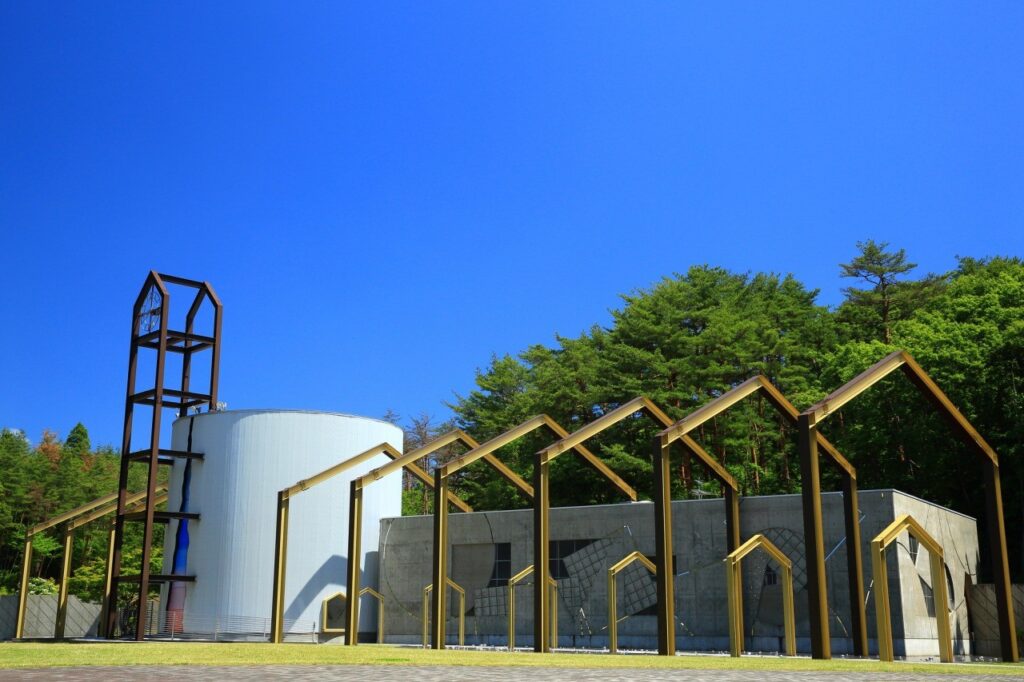
It is the main facility of the Fairy Tale Village. It is characterized by a house-shaped arch. Inside, there are a number of spaces divided by theme, each representing the world of Kenji’s works.
(1) Space Room: The Sparkling World of Big Life

A huge kaleidoscope space composed of three mirrors. A world inspired by outer space is created by light using strobe lights and optical fibers. It is also a fantastic space where the sound of whale comets taking off and stars twinkling echoes through the air.
(2) Room of the Earth: The World of Living Things in Ihatov

This diorama space is decorated with giant models of insects, plants, and trees that live in the nature of Ihatov. Visitors can see cats flying around on overhead monitors, and feel as if they are lost in the world of giant creatures, as if they are as small as ants.
3) Fantasy Hall
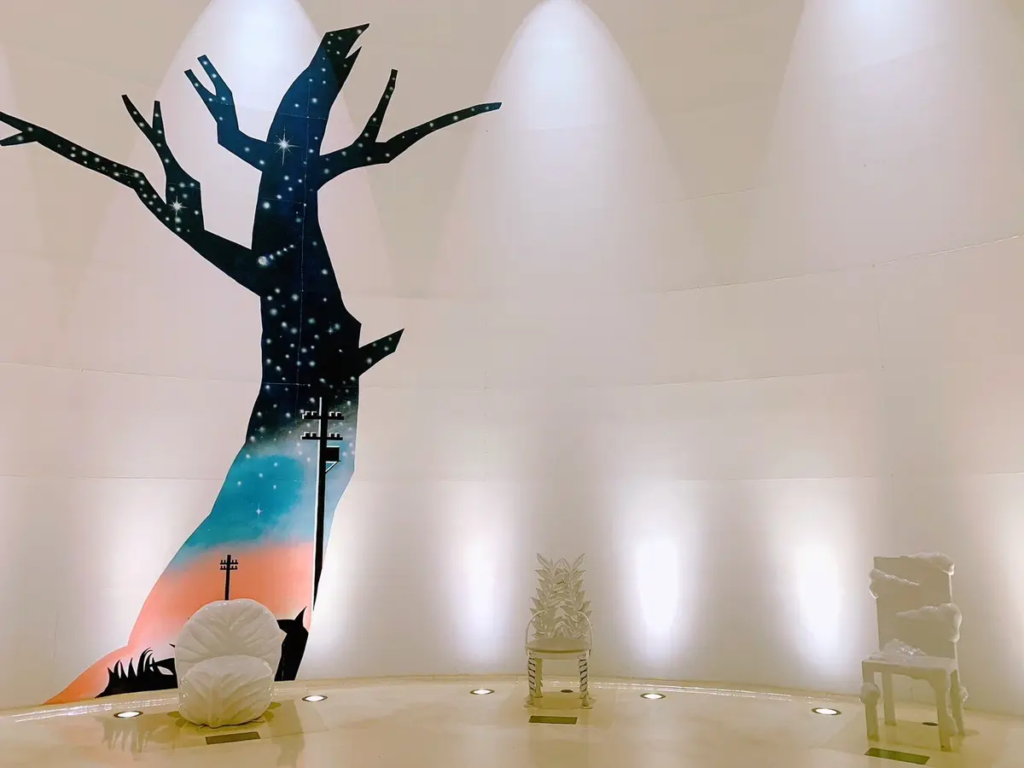
A mysterious space with a number of “Kenji’s chairs”. It is set up as a prologue to Kenji’s world. The scenery of Ihatov is projected using images and sound effects, and Kenji’s personality and representative fairy tale works are introduced.
・Light up the Forest of Fairy Tale Village/Understanding Kenji’s Light
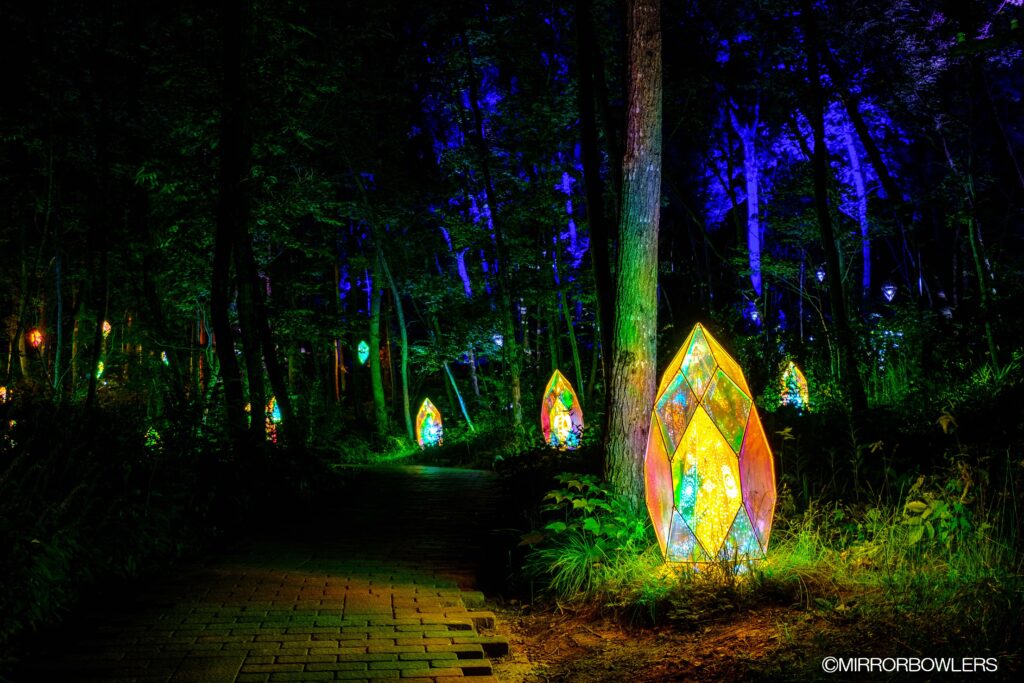
Visitors can enjoy the world of Kenji’s works through a spatial presentation that fuses the nature of the Fairy Tale Village with the light of fantastic objects. Kenji, by the way, is also a magician of “light.
As mentioned in another blog, he had a deep knowledge of natural science, and had an understanding of the existence and structure of “light” that was ahead of its time. He believed that light is not mere proof of illumination of darkness, but also the source of all things, the proof of life. Kenji is said to have been strongly influenced by Joseph John Thomson (J.J.Thomson; 1856-1940), the physicist who discovered the “electron” in addition to Einstein. Thomson believed that the “elements,” which were considered the smallest unit of “matter,” were divisible, and that the “elements” consisted of “electrons” interspersed within “atoms” (he devised an atomic model called the “grape-pan model”). In other words, the smallest unit of “matter” consisted of “electrons,” which are also related to “electric energy. For Kenji, this meant that “the entire universe, including human beings, is unified by the energy unit of electrons. He said that what we become depends on “cause and effect” in Buddhism, and that “the phenomenon of me” is just one blue illumination caused by the causal intersection of electric lights.
This illumination is filled with Kenji’s thought. In the darkness, visitors can experience the light of the seven-colored objects and themselves as if they were one with the light of the objects.
Introduction to the facilities
・Kenji Miyazawa Memorial Hall
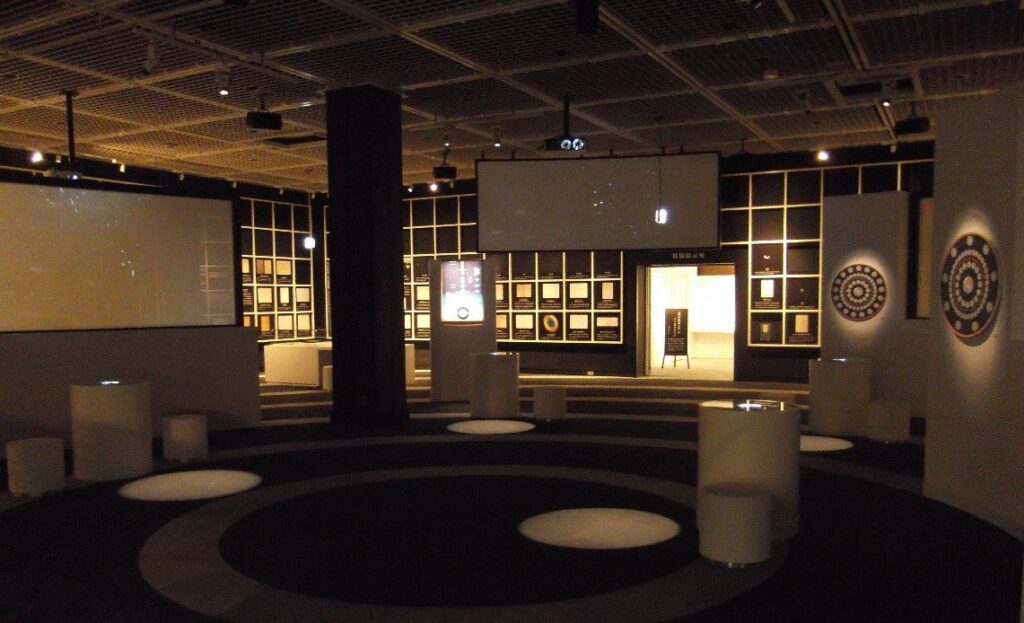
This facility is designed to familiarize visitors with the world of Kenji Miyazawa’s diverse activities, including poetry, fairy tales, education, agriculture, and science. Since its opening, the museum has been visited by many Kenji lovers. At the Kenji Miyazawa Memorial Museum, in addition to exhibits of Kenji’s favorite items, manuscripts, and other items related to Kenji, visitors can approach Kenji’s universe through videos, slides, library materials, and other exhibits. Why not experience the world of Ihatov for yourself? In addition to the exhibits, the museum also has a souvenir store and a coffee shop. In the “Poran’s Square” located on the south side of the Kenji Miyazawa Memorial Museum, there are the Nanshaku Flowerbed and Sundial Flowerbed designed by Kenji Miyazawa. They were recreated based on the design specifications left by Kenji Miyazawa.
・Ihatov Village
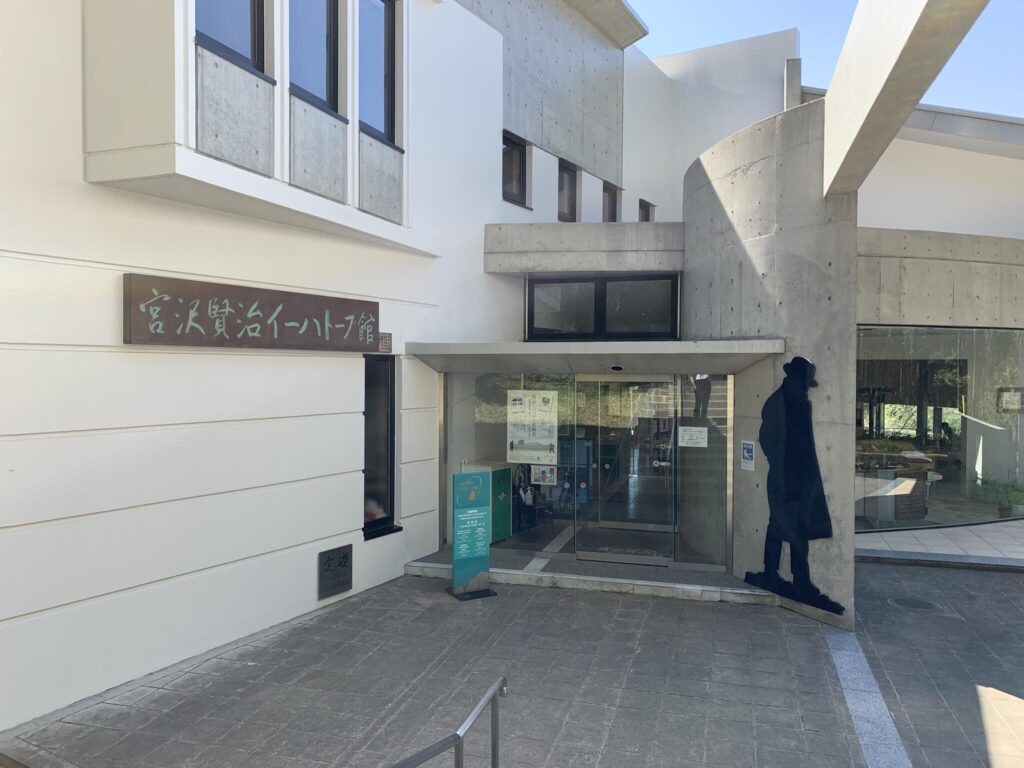
This facility is for those who want to learn more about Kenji Miyazawa. It is also a literature museum with a large collection of art works and research papers in various genres on Kenji published by people who love Kenji Miyazawa and his works. The collection is organized in an easy-to-understand manner, and anyone is free to view, touch, and use it. It is also the headquarters of the “Ihatove Center of the Miyazawa Kenji Society,” a group of enthusiasts and researchers of Kenji’s works.
The museum also sells picture books of Kenji’s works for children, research books, CDs, videos, etc., and holds various lectures, research presentations, and concerts during the Kenji Festival and the Kenji Birthday Festival. The museum also has a café space where visitors can enjoy a light meal.
Conclusion
The Kenji Miyazawa Fairy Tale Village is a huge amusement facility that honors Kenji Miyazawa, the magician of light. At night, the space is instantly enveloped in a fantastic atmosphere, as if a galactic railroad were coming to town. The creators have succeeded in creating such a place by skillfully visualizing Kenji’s words and bringing the world of his works to life.
This summer, too, the fairy tale village will be illuminated. Why not visit the forest this summer for a memorable summer experience?
★Writer of this blog: Ricky★
Leave it to us when it comes to cultural matters! Ricky, a Japanese culture evangelist, will turn you into a Japan geek!
More Information
Kenji Miyazawa Fairy Tale Village
Address: 26-19 Takamatsu, Hanamaki-shi, Iwate 025-0014
Phone/Fax: TEL: 0198-31-2211
FAX: 0198-31-2213
Hours: 8:30-16:30
Closed: December 28 – January 1
The museum may be temporarily closed for facility maintenance, etc.
Kenji’s School: Adults 350 yen, High school and college students 250 yen, Elementary and junior high school students 150 yen
There is a common admission ticket with Kenji Miyazawa Fairy Tale Village, Hanamaki City Museum, and Hanamaki Nitobe Memorial Museum.
Admission to the Kenji Fairy Tale Village and the Kenji’s Classroom is free.
Parking: Yes
Access: 3 min. drive from Shin-Hanamaki Station, 15 min. drive from Hanamaki Station
2 minutes by bus from JR Shin-Hanamaki Station (17 minutes by bus from JR Hanamaki Station), 5 minutes walk from Kenji Memorial Museum Exit bus stop on the Tsuchisawa Line
Source
Official HP

The “Fairy Tale Village Forest Light-up 2024” will be held!





